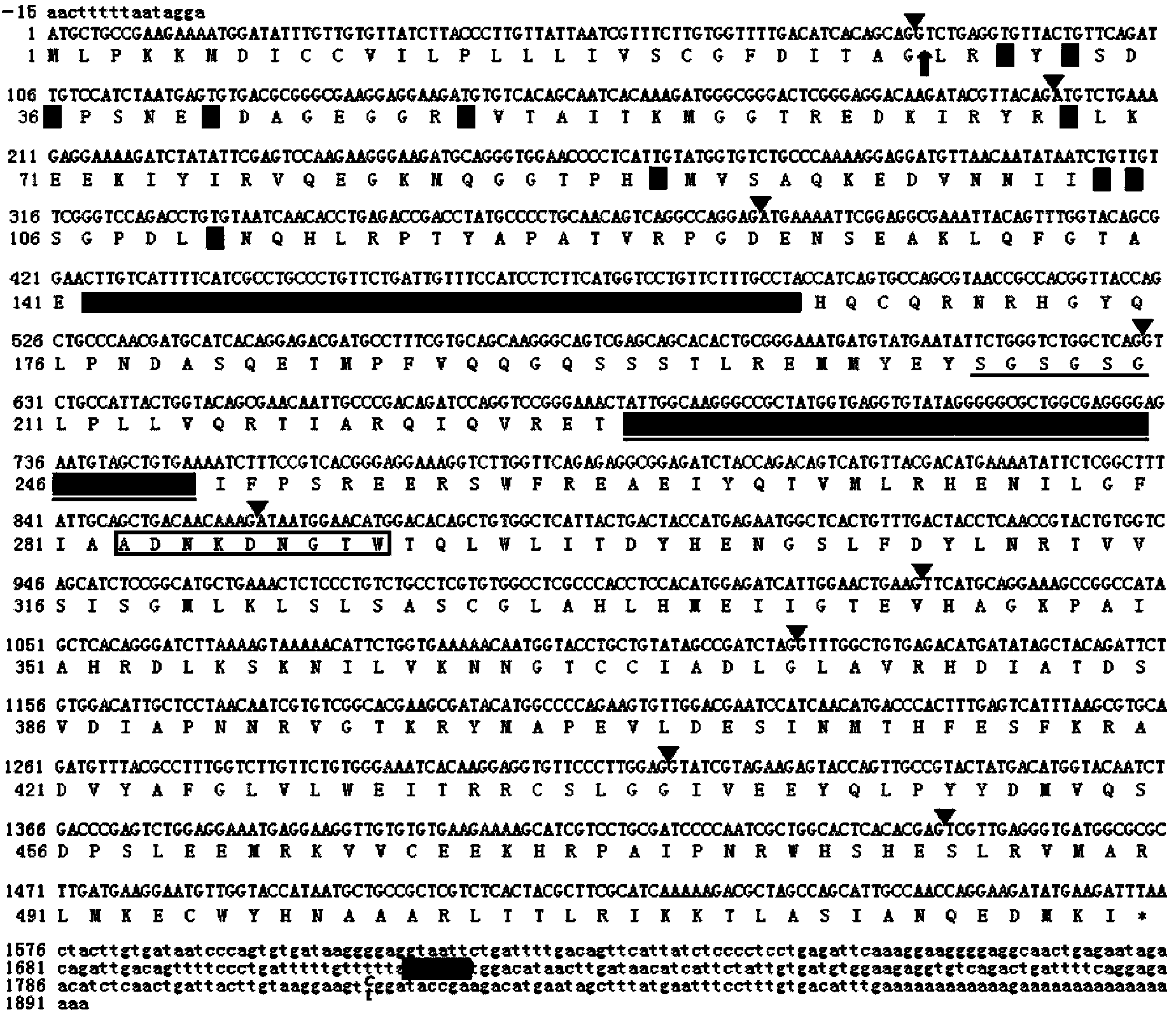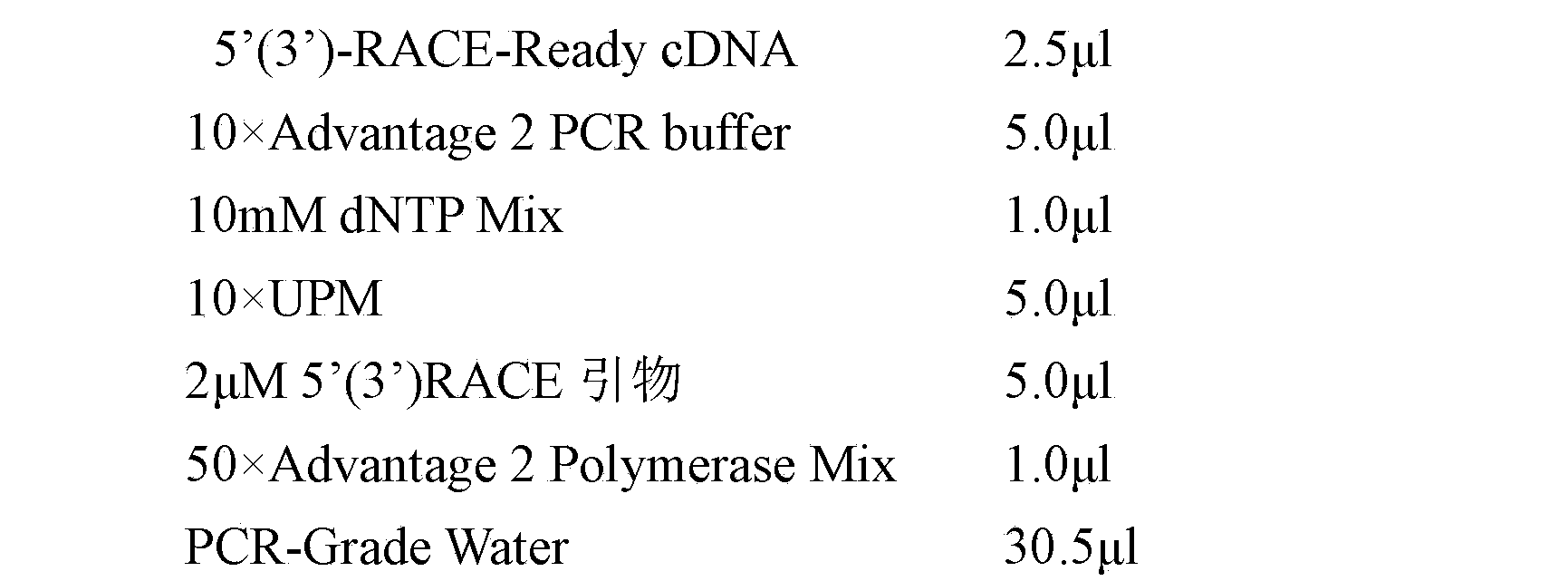Transforming growth factor-beta (TGF-beta) type I receptor gene of chlamys farreri and single nucleotide polymorphism (SNP) locus of TGF-beta type I receptor gene
A Chlamys farreri, site technology, applied in the field of high-yielding scallop breeding, can solve the problems of few genes or gene sites, and no TGF-β signaling pathway receptor gene report.
- Summary
- Abstract
- Description
- Claims
- Application Information
AI Technical Summary
Problems solved by technology
Method used
Image
Examples
Embodiment 1
[0021] The cloned scallop TGF-β superfamily type I receptor gene Tgfbr1 has the sequence shown in SEQ ID NO.1.
[0022] Chlamys farreri Tgfbr1 gene cDNA sequence cloning in the present invention comprises the following steps:
[0023] a) extraction of total RNA from adductor muscle of Chlamys farreri;
[0024] b) synthesis of cDNA first strand;
[0025] c) Obtaining the cDNA fragment of the target gene;
[0026] d) Scallop 5' RACE and 3' RACE library construction;
[0027] e) Obtaining the full-length cDNA sequence of the target gene;
[0028] f) Bioinformatics analysis of the target gene.
[0029] The specific operation is as follows:
[0030] a) Extraction of total RNA from Chlamys farreri: Total RNA was extracted from Chlamys farreri adductor muscle according to the Trizol method.
[0031] b) Synthesis of the first strand of cDNA: 2 μg of total RNA was used as a template, and 1 μl of 20 μM Oligo d(T) was added respectively 18 , RNase & DNase-free H 2 O to make up to...
Embodiment 2
[0047] In the present invention, the screening analysis of the SNP loci related to the adductor muscle weight in the Chlamys farreri Tgfbr1 gene and its application in the breeding of high-yield Chlamys farreri comprises the following steps:
[0048] a) SNP site screening of Chlamys farreri Tgfbr1 gene;
[0049] b) Genomic DNA extraction of Chlamys farreri;
[0050] c) Design of primers and probes for c.1815C>T typing;
[0051] d) SNP c.1815C>T typing;
[0052] e) Correlation analysis between c.1815C>T genotype and adductor muscle weight;
[0053] f) SNP c.1815C> assists in the breeding of high-yielding Chlamys farreri.
[0054] The specific operation is as follows:
[0055] a) SNP site screening of Chlamys farreri Tgfbr1 gene: Analyze the sequencing results of 5′ RACE and 3′ RACE clones to find candidate SNP sites.
[0056] b) Extraction of Chlamys scallop DNA: take about 0.1 g of adductor muscle, add 500 μl of STE lysis buffer, cut it into pieces, add 50 μl of 10% SDS, ...
PUM
 Login to View More
Login to View More Abstract
Description
Claims
Application Information
 Login to View More
Login to View More - R&D
- Intellectual Property
- Life Sciences
- Materials
- Tech Scout
- Unparalleled Data Quality
- Higher Quality Content
- 60% Fewer Hallucinations
Browse by: Latest US Patents, China's latest patents, Technical Efficacy Thesaurus, Application Domain, Technology Topic, Popular Technical Reports.
© 2025 PatSnap. All rights reserved.Legal|Privacy policy|Modern Slavery Act Transparency Statement|Sitemap|About US| Contact US: help@patsnap.com



